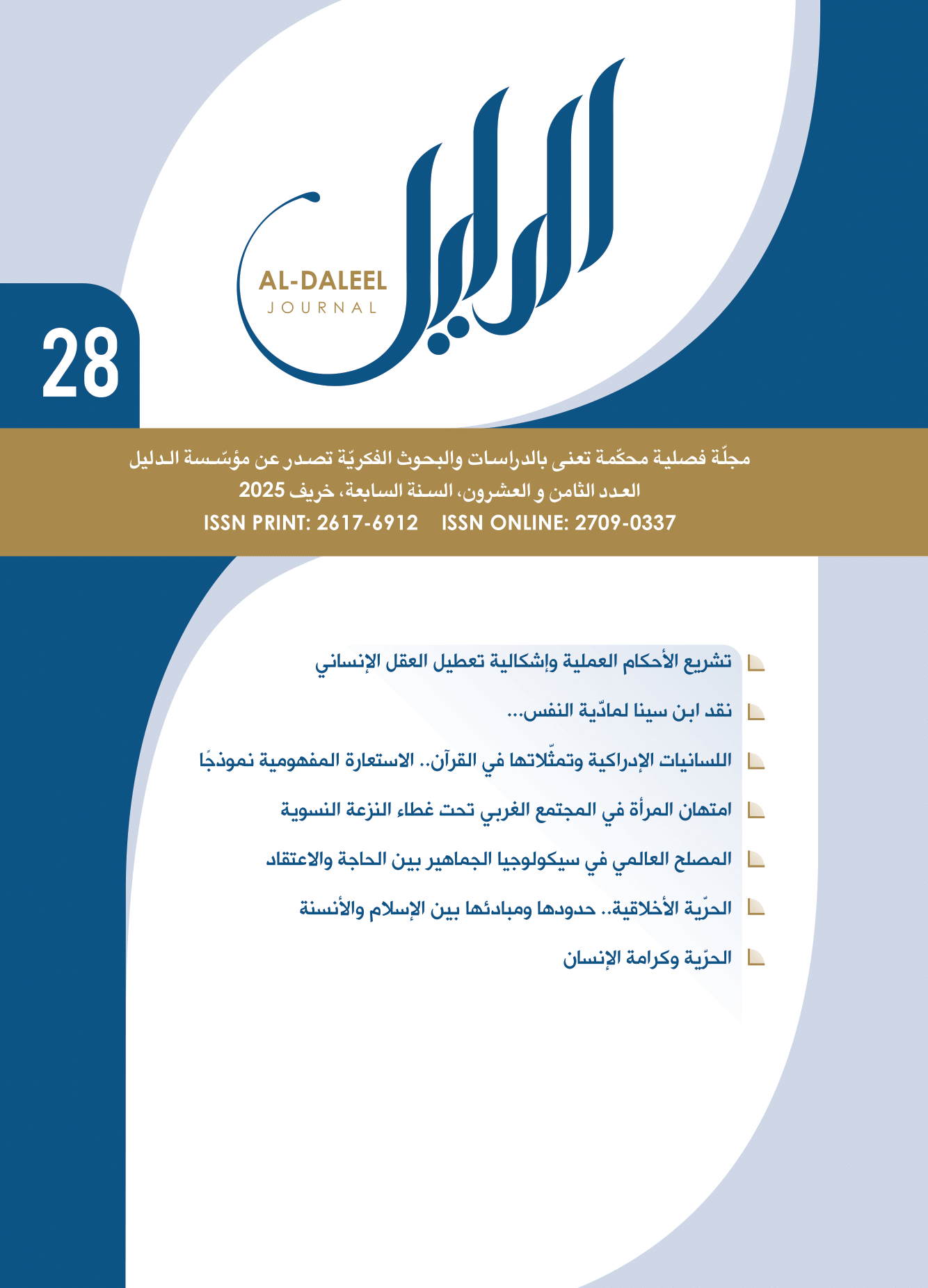Abstract
Human progress on the path toward perfection depends on the existence of laws and regulations that properly govern behavior. These laws must be in harmony with all aspects of the human constitution in order to prevent deviation from the natural path of development and to ensure accurate discernment of benefits and harms, which in turn shape human conduct in worldly life. It is well established in both philosophical and theological disciplines that God, exalted is He, is the Creator of human beings and all contingent beings through His knowledge, power, and wisdom. He is, therefore, the most knowledgeable - absolutely - about what benefits and harms humankind. Accordingly, divine wisdom and providence have necessitated that these laws and rulings be instituted by God Himself, in a manner that takes into account all existential dimensions of the human being in setting the general framework for conduct, guiding humanity toward its intended perfection within the brief span of earthly life. However, some claim that divine legislation entails the negation of the role of human reason and the disabling of the cognitive faculties intrinsic to human nature, including the experiences and insights through which humans, unlike other creatures, determine practical principles for life. On this basis, they argue that the authority to legislate should be transferred from the Creator to human reason. This article, employing a descriptive and analytical methodology, seeks to respond to this challenge. It argues that formulating laws in a way that fulfills the very purpose of human existence in this world necessarily requires certain characteristics - characteristics that can only be found in the Creator of the universe and humankind. Thus, the authority to establish practical rulings must lie with God. Far from rendering human reason obsolete, this perspective affirms its essential role in recognizing and validating divine legislation.
Keywords
Divine legislation
human behavior
human experience
Instrumental Reason
law
Reason
Abstract
إنّ حركة الإنسان في طريق تكامله تتوقّف على وجود قوانين وتشريعات تضبط سلوكه بشكل صحيح، ولا بدّ أن تكون تلك القوانين منسجمةً مع جميع أبعاده التكوينية؛ لكي لا ينحرف عن مساره الطبيعي التكاملي، ولايخطئ في تحديد المصالح والمفاسد التي تضبط حركته في الحياة الدنيا. والثابت في محلّه في علمي الحكمة والكلام أنّ الله هو خالق الإنسان وجميع موجودات عالم الإمكان بعلمه وقدرته وحكمته، فهو الأعلم - على الإطلاق - بما يصلح الإنسان وما يفسده؛ ولذا اقتضت حكمته تعالى وعنايته بالإنسان وضع هذه القوانين والتشريعات من قبله؛ حتّى تلاحظ جميع الأبعاد الوجودية للإنسان في تحديد الإطار العامّ لسلوكه في الوصول إلى كماله المنشود في حياته الدنيا القصيرة. ولكنّ هناك من يدعي أنّ مقتضى وضع القوانين والأحكام الشرعية من قبل الخالق هو إلغاء لدور العقل الإنساني، وتعطيل لكلّ القدرات الإدراكية الموجودة في الطبيعة الإنسانية، بما في ذلك التجارب والخبرات البشرية التي تميّز بها الإنسان عن الكائنات الأخرى في تحديد الضوابط العملية للحياة؛ ولذا لا بدّ من إعطاء المرجعية في وضع هذه القوانين إلى العقل الإنساني بدلًا من الخالق. تحاول هذه المقالة بمنهج توصيفي وتحليلي أن تجيب عن هذه الإشكالية، وتثبت بأنّ وضع هذه القوانين بنحو يؤدّي إلى الغرض من وجود الإنسان في الحياة الدنيا، إنّما يكون من جهة تتحقّق فيها بعض الخصوصيات التي لايمكن أن تتوفّر إلّا في خالق الكون والإنسان، فكان لا بدّ من أن يكون المرجع في وضع القوانين والتشريعات العملية، وهذا الأمر لا يستلزم تعطيل العقل الإنساني، بل هو مقتضى كشفه وحكمه.
Keywords
التجارب البشرية
التشريع الإلهي
العقل
العقل الأداتي
القانون
سلوك الإنسان
